To boldly go where no school has gone before...
- Feature Blog

- May 29, 2020
- 6 min read
Updated: Jun 4, 2020

“There are three types of people in this world, those who make things happen, those who watch things happen and those that say ‘what happened’?”
American Proverb
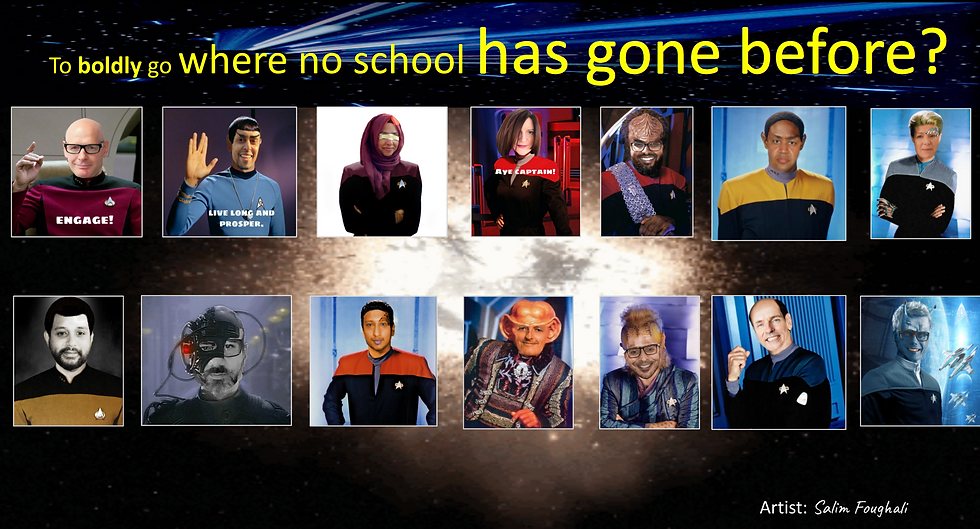
The picture above is superimposing some of our leadership group members to Star Trek characters. It was the first slide of one of our recent, remote, trust-wide twilights. I was hoping to steer the potential perception of doom and gloom into something exciting, an opportunity, for us to take full charge of the situation and suggest that we ‘boldly go where no schools have gone before!’
A forward-thinking trust
We must give credit to many schools out there for the success of Ofsted Outstanding FGCS. While we pride ourselves with being in the top 50 schools in the country for P8, for four years in a row, we could not have achieved this if it weren’t for taking on new ideas from beyond the school. We like to magpie. And we're not ashamed to admit it! We have worked closely with the PIXL club, visited many schools up and down the country and have always brought back ideas to try and implement in order to improve standards.
Being outward-facing has allowed us to foster a culture of creativity and innovation. And it's led to some great changes for the better. Here are 4 examples:
We banned retrospective marking and have introduced live marking, making feedback a lot more meaningful for staff and students
When Gove announced one of the biggest educational reforms the country had faced in 2015, namely, getting rid of levels as we knew them, we redefined how we sequenced our curriculum and have invented the Dynamic Progress Reporting (DPR)
We moved to a four-and-a-half day week and three-week winter break to improve productivity
The way we embraced remote learning has meant a smooth transition to home learning for all of our stakeholders
Following the footsteps of FGCS, the other two schools in the trust are also making rapid improvements.
The COVID challenge or yet another opportunity?
“The gap (between the rich and the poor) has closed over the 10-year period by around 10 percentage points. Unfortunately, our initial analysis suggests that that gap will be at least entirely reversed.”
Professor Becky Francis, chief executive of the Education Endowment Foundation
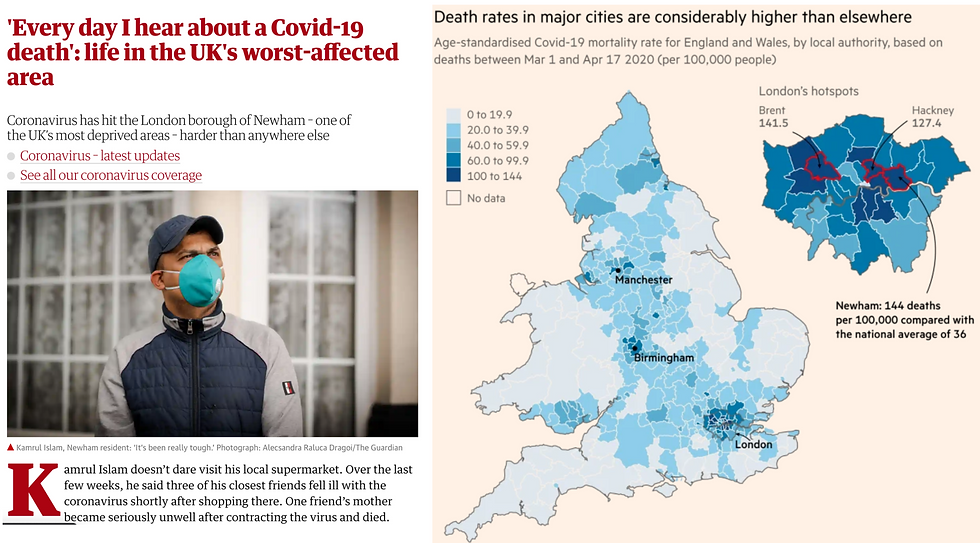
Covid-19 is not a 'great leveller' despite what some may say. Our schools are situated in two of the most adversely affected boroughs in the country, Newham and Hackney. We have a large proportion of students who are from ‘disadvantaged’ backgrounds, who are living in overcrowded living spaces and are generally struggling to get by. So playing 'catch up' at school will certainly be a challenge. We are no strangers to adversity and now we are presented with possibly the most challenging adversity yet.
Planning is not anything new to school leaders. But how do you plan precisely for an unknown future? Scientists talk about the possibility of more disruption with a strong possibility of a ‘second wave’ next Winter. The government guidance can be also quite confusing, to put it mildly, and many school leaders have been left to their devices to ‘prepare’ for a future no one can accurately predict.
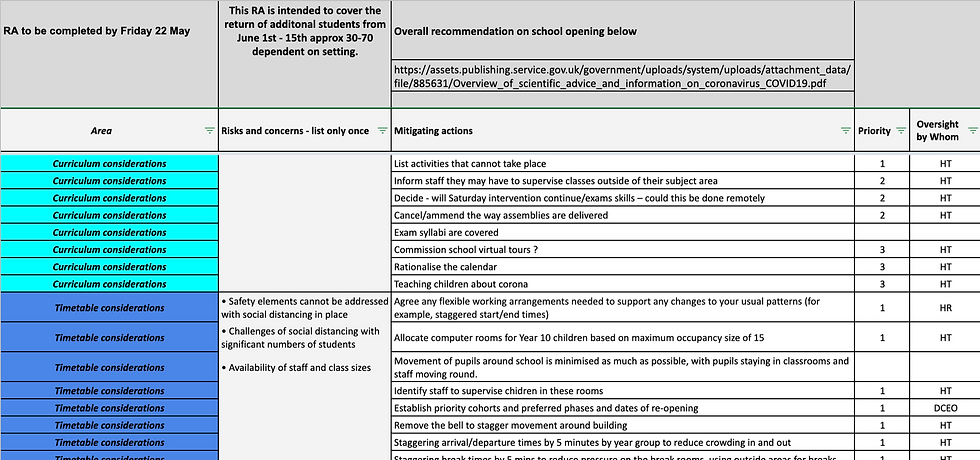
At the CST, we love a good checklist or risk assessment. It is an example of the robust systems we pride ourselves in to ensure quality at all levels. So when tasked with creating a risk assessment to prepare for the wider opening of schools, we knew it would be the mother of all risk assessments! Currently, it sits at 339 points of mitigating actions, broken down by category and priority, and continues to grow. We have asked our staff to contribute actions we may not have considered. The more we think to mitigate, the safer we are.
Of course, there remain many unanswered questions; what is the future for the current Year 10s? How will they be assessed? How do we enforce social distancing with children? Will there be a vaccine? How much longer will this go on for?!
Despite the unknown, the uncertainty and the fear, we have to harness the good in such difficulties. We are being forced to think outside the box because the box we are familiar with no longer exists. We are in unchartered waters and there is no benchmark. In chaos there is an opportunity and we must take it.
Time to adapt?
‘Evidence-based principles are just as valid online as in the classroom’
Professor Daniel Muijs, head of research, Ofsted and Dr. Dominique Sluijsman, associate professor, Zuyd University of Applied Sciences, argued the following regarding remote learning:
Avoid focusing on ‘tools, instead of the coherence of learning goals, curriculum, teaching strategies and assessment/feedback…’
Structure and transparency lead to greater peace of mind
Remote learning relies on students metacognitive skills-something they often lack!
When organising sessions, keep them at fixed times
Effective feedback is crucial. It should be goal-oriented and focused on progress
For us, the message is very clear; keep the main thing the main thing. In our most recent trust-wide virtual twilight, we did a quick self-reflection on virtual teaching pedagogy.
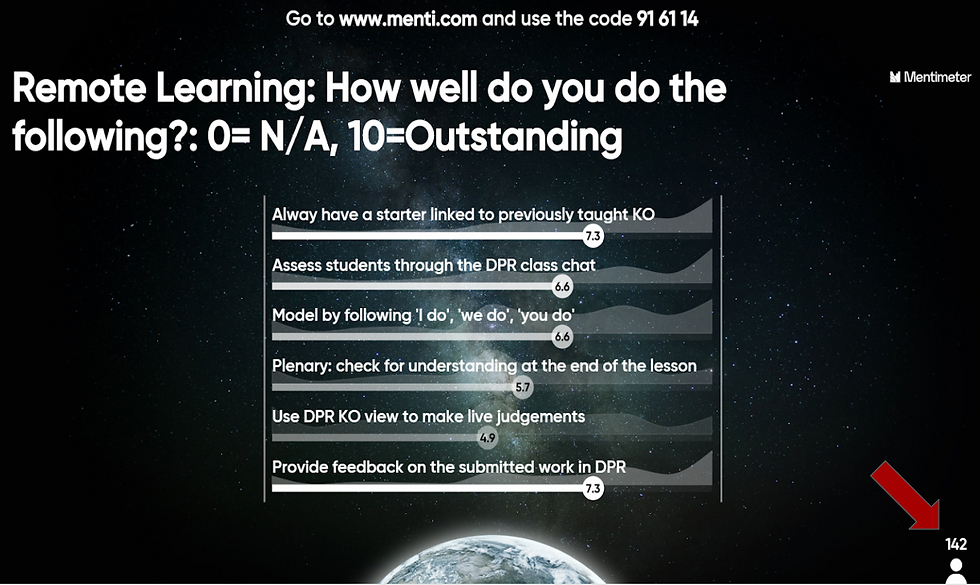
We want our students to be engaged by doing the following:
Attending online lessons for the first 20 minutes. It establishes routine, provided face to face contact the children really need at this time and allows expert teacher explanation to facilitate the learning
Login to the DPR every day and submit all work that is completed
Teachers to record the quality of students work and provide useful feedback on how to improve through DPR
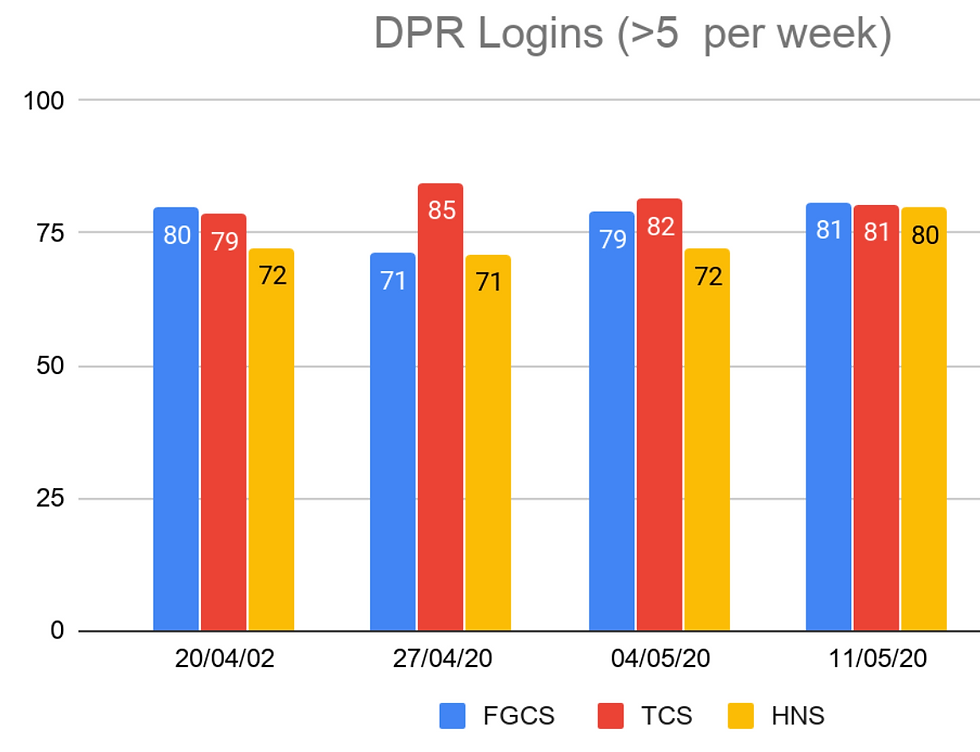
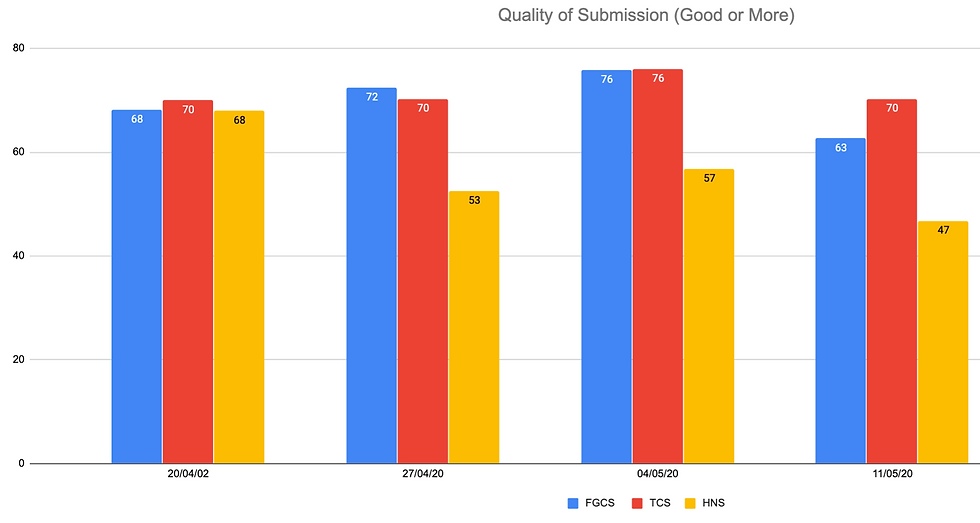
We made it very clear to our staff and students about these expectations and the implications on learning if not done properly. The DPR is our central system where teachers, students and parents continue to engage with the schools’ intended curriculum, albeit from home; where teachers continue to link learning resources that aids learners from home; provide useful feedback-through voice or otherwise; have a real-time question and answer session through the DPR ‘Class Chat’ where learning dialogue is evidenced; and where teachers continue to assess and make judgements on the extent of students' learning. Essentially, it is where we evidence all progress associated with learning that is linked directly to the school curriculum.
Above-DPR Class Chat: students writing and sharing their monologues

Above-DPR Class Chat: Music feedback

We are relentlessly tracking all students' engagement and intervening where we need to. For example, we have grouped different types of students into various categories and working toward improving the extent of their engagement on a weekly basis. We are taking engagement very seriously because we understand that by improving learning engagement now would mean reducing catch-up later on.
A blended Future?
For me, the future may be uncertain, but it is certainly intriguing. We will have to consider some sort of blended learning for at least the next academic year. For example, given the risks associated with mass gathering, schools would need to address how they approach the following:
Assemblies
Mock exams and testing approaches in general
Class sizes
Staff and students not returning to work who are ‘extremely clinically vulnerable’ to the illness
As a trust, we have always adapted well to new realities. Our staff have been brilliant in their quick adaptation and the resilience they have shown. The future is full of promise for us as we continue to address our core work relating to the curriculum development.
Our priorities right now:
Our curriculum work never stops. We continue to fine-tune the existing curriculum and its sequencing
Reforming how we approach homework to focus on knowledge recall and memory retention - a need greater now than ever before
We will enhance our knowledge organisers - booklets that capture the core things we want our students to know and remember
Embed quality memory recall features in every lesson, every day
We will develop subject-based ‘curriculum booklets’, which links specifically to our curriculum
The transition from Explicit Direct Instruction (EDI) to Direct Instruction (DI) for some subjects
Continue enhancing the blended learning opportunity
For those interested, I will be addressing some of these in more detail in my future blogs. For now, we will utilise the talent, capacity and dedication within our trust to venture into the unknown, to boldly go where no school has gone before…
coming up...
Our talented team will discuss what it takes to develop these beautiful curriculum booklets.
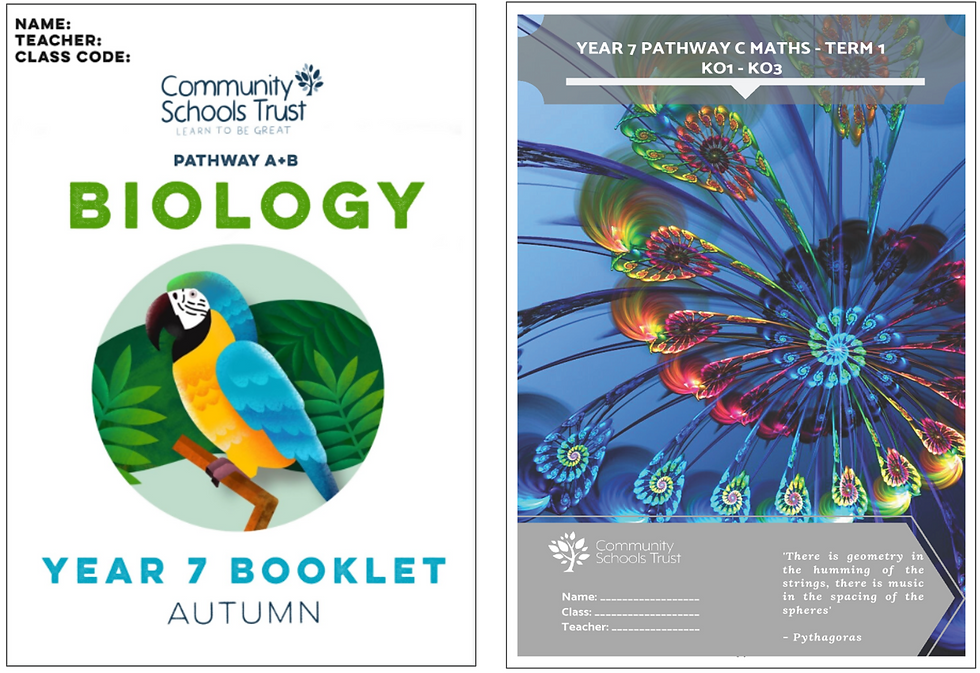
Related reading:
1. Forest Gate Community School: our approach to remote teaching and learning


